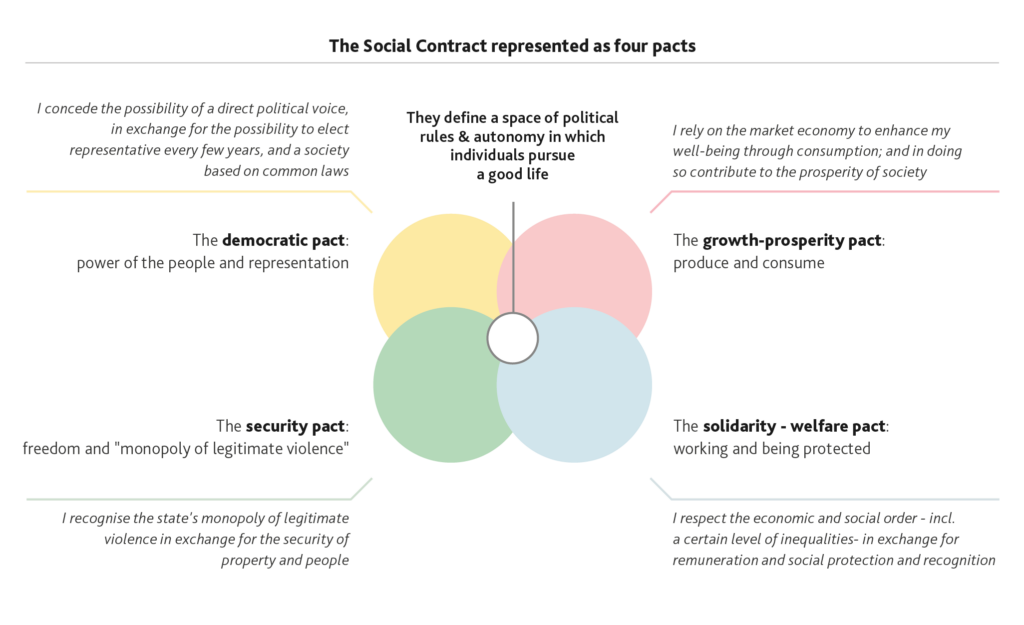ABOUT THE Project
Context. We’re living in a critical period: existing social tensions, mistrust and political polarization are exacerbated by debates on climate action and its implementation. All the more so when environmental policies seem to challenge our lifestyles and freedoms, and sometimes even our expectations of fairness. As a result, it is hard to imagine the path and the public policies that will enable us to achieve the sustainable future we know to be possible and desirable.
Approach. Citizens in democratic countries implicitly understand their relationship with the state as being based on a social contract – they expect the state to guarantee certain safeties and freedoms, and in return they acknowledge the rules and norms of society. But the social contract we take for granted today emerged in a very different context: the post-war era of seemingly never ending growth. It is no longer fit for purpose.
Employing the concept of a social contract can help us diagnose and understand the social problems we face today by making explicit the arrangements, narratives and pacts that structure our life in society. And engaging in the work of forging a new eco-social contract appears necessary to adapt to the new geo-ecological reality and to discuss the equity we want and the freedoms we value most in the context of the ecological crisis. This would enable us to reassess the place of consumption in relation to our rights as citizens and workers, and what changes we are prepared and ready to make in our lifestyles in exchange for greater social, political and climate security.
Read more
The project will investigate four questions:
- How have our modern social contracts emerged and evolved? We consider two countries – France and the UK and expect to find that the social contracts we currently take for granted are neither immutable nor inevitable.
- Do citizens really ascribe to some form of implicit social contract? If so, what are their expectations in terms of rights and duties ? What are the unfulfilled promises ?
- Are governments upholding the contract? To explore this, and using the definition of the social contract as elaborated by experts and expressed by citizens, we will develop a dashboard of indicators that measure the extent to which governments respect or break this contract.
- How can citizens engage in the complex process of renewing the social contract? We will collaborate with participation and deliberation experts to explore diverse methods for deliberative workshops, with a view to inspiring governments to rise to the challenge and support such a process in the near future.
If you are curious to know more about the project or have any questions please contact Saamah Abdallah (s.abdallah@hotorcool.org).







